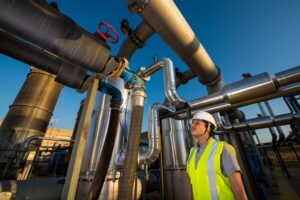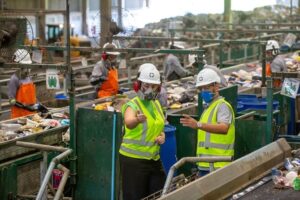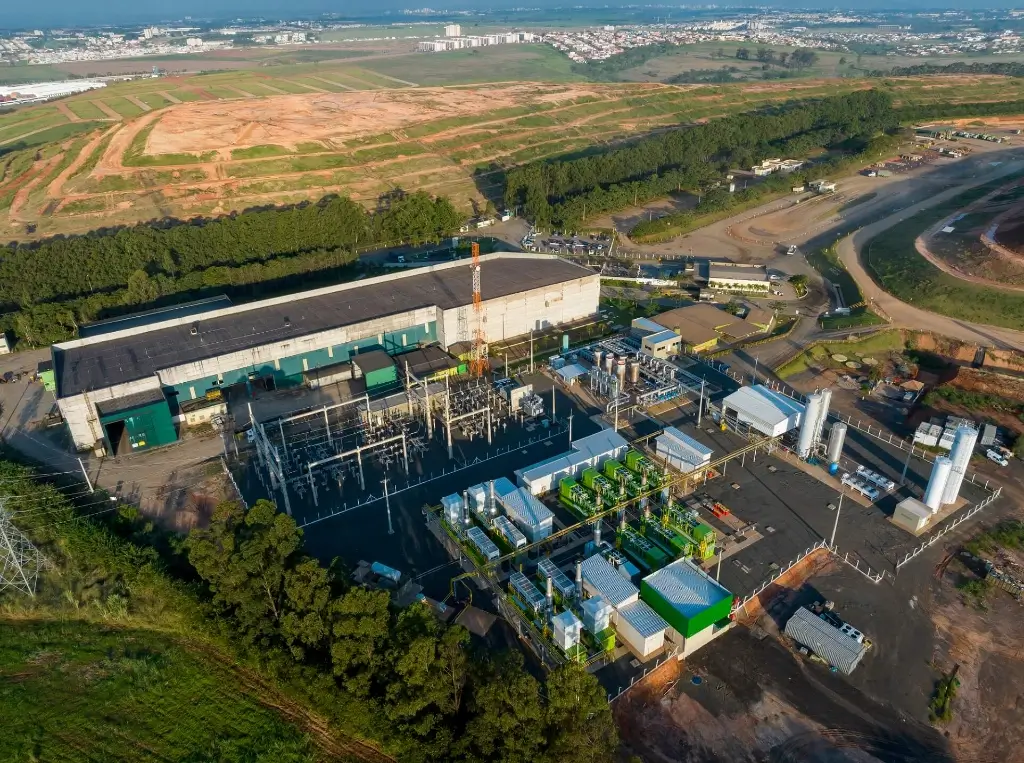
The Future Fuel Law promises to accelerate Brazil’s energy transition, driving new technologies to make the transportation sector less polluting and, in turn, move closer to the country’s carbon emission reduction goals.
Here you will learn:
- What the Future Fuel Law No. 14,993/24 is
- Changes in mobility with the Future Fuel Law
- Fuels addressed in Law No. 14,993/24
- Benefits and key considerations of the law
- Incentives for biofuel development in Brazil
- Biofuel success case study
This initiative aligns with the global movement to reduce carbon emissions in the atmosphere since the energy sector, which relies heavily on oil and gas, is the world’s largest polluter, accounting for over 77% of greenhouse gas emissions in 2019.
In Brazil, according to the Greenhouse Gas Emission Estimates System (SEEG), the energy sector accounted for 18.3% of the country’s GHG emissions in 2023, ranking second only to deforestation and agriculture.
Everything you need to know about the Future Fuel Law, No. 14,993/24, is here:
What is Law No. 14,993/24, Future Fuels
The Law No. 14,993/24 originated from Bill 528/20, proposed in 2020. The Future Fuel Law aims to regulate and promote various types of fuels for Brazil’s energy transition, advancing low-carbon sustainable mobility and the geological storage and capture of carbon dioxide in the country.
To achieve its goals, the law establishes several programs encouraging different sectors to adopt renewable fuel sources in their operations, with deadlines set for meeting the targets by 2030.
The programs include:
- National Program for Sustainable Aviation Fuel (ProBioQAV): Encourages the production and use of sustainable aviation fuel (SAF), reducing dependence on fossil kerosene.
- National Green Diesel Program (PNDV): Promotes the use of green diesel, made from renewable biomass.
- National Decarbonization Program for Gas Producers and Importers and Biogas Incentives: Supports the use of biogas and biomethane to replace fossil fuels in the natural gas sector.
What Changes in Mobility with the Future Fuel Law
With the Future Fuel Law, the main changes include:
- Mandatory increases in biodiesel blending with diesel and ethanol blending with gasoline.
- Adoption of SAF (Sustainable Aviation Fuel).
- Innovation incentives in the energy sector.
- Regulation of geological carbon dioxide (CO₂) capture and storage, encouraging technologies that remove CO₂ from the atmosphere.
These proposals will be gradually implemented. For example, airline operators must annually increase the use of SAF, reaching 10% by 2037, while the addition of biodiesel to diesel will progressively rise, reaching 20% by 2030.
Moreover, to ensure tracking and proof of the energy transition, each sector must issue a certificate proving the use of biofuels.
Finally, to guarantee compliance with the regulations, the ANP (National Agency for Petroleum, Natural Gas, and Biofuels) will act as the regulatory agency responsible for monitoring the law, with the authority to impose severe fines for violations.
Fuels Considered Under Law No. 14,993/24
What are the future biofuels being regulated and incentivized by this law? Let’s analyze each one!
Biodiesel
Biodiesel is a biofuel produced from vegetable oils, such as soybean oil, or animal fats through chemical processes like transesterification.
Currently, biodiesel is blended at 15% into fossil diesel, but under the new law, this number is expected to increase to at least 20% by 2030 to supply road transport, agricultural machinery, and other applications.
Biodiesel is considered a biofuel because it comes from renewable sources, captures CO₂ during the planting phase of oilseed crops, and promotes a circular economy by reusing cooking oils and other waste.
Biogas

It is considered a biofuel for its ability to reduce the need for fossil fuels, utilizing waste as an energy source in a circular manner and minimizing greenhouse gas emissions associated with organic waste disposal.
Among the advantages of biogas is its high concentration of methane (CH₄), which can be used for thermal or electrical energy generation, as well as its ability to be produced in continuous cycles due to the constant generation of organic waste.
Biomethane
A gaseous biofuel, biomethane is obtained by purifying biogas, removing CO₂ and impurities.
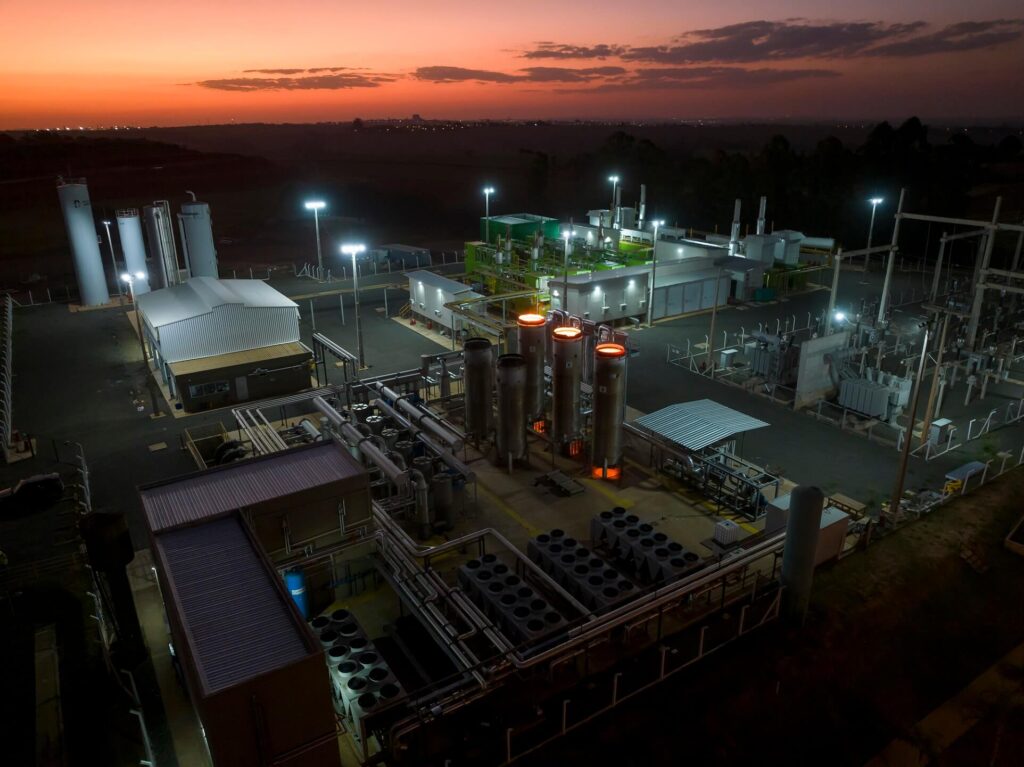
Biomethane offers the advantage of emitting less CO₂ during use, being derived from renewable sources, and addressing another issue: the treatment of organic waste that, if improperly managed, can generate GHG emissions, contaminate soil and groundwater, and represent an economic loss if not reused.
This biofuel can substitute natural gas in industries, supporting energy generation and transportation, such as in agricultural machinery.
The Future Fuel Law establishes the Biomethane Origin Guarantee Certificate (CGOB) to ensure the traceability and sustainability of biomethane.
Synthetic Fuels
Synthetic fuels are produced through chemical or biotechnological processes using renewable biomass as raw material, replicating the characteristics of fossil fuels.
They can be used to partially or entirely replace fossil fuels in various applications.
Synthetic fuels are considered biofuels because they rely on processes that utilize carbon captured from biomass, reducing reliance on petroleum and promoting sustainability with a lower environmental impact.
Sustainable Aviation Fuel (SAF)
SAF is an alternative to fossil aviation kerosene, produced from renewable biomass such as vegetable oils, animal fats, or organic waste.
Its advantages include a reduced greenhouse gas (GHG) emission balance, considering avoided emissions during its lifecycle.
The mandatory use of SAF will gradually increase, from 1% in 2027 to up to 10% in 2037.
Ethanol
Ethanol is the most common and widespread biofuel in Brazil. It is a liquid derived from renewable biomass, with ethyl alcohol as its main component, sourced from organic products such as sugarcane or corn.
It is directly used in internal combustion engines that can be fueled with 100% ethanol or with the mandatory blend in gasoline, currently set at 27%, with the possibility of increasing to up to 35%.
Ethanol is considered a biofuel due to its renewability, CO₂ capture during cultivation, and lower carbon emissions compared to gasoline. It can be used for vehicle fueling, industrial use, and energy generation.
Benefits and Considerations of the Law
The key question in the energy sector regarding this law is its practical applicability. Despite being a step forward in Brazil’s energy transition, the Future Fuels Law also raises points of concern that must be considered. Let’s examine the benefits and considerations of the law:
Benefits
- Environmental Sustainability:
- Reduced use of fossil fuels and carbon emissions in critical sectors.
- Promotion of the circular economy by reusing waste to produce fuels.
- Technological Innovation:
- Encouragement of technologies such as synthetic fuels and carbon capture.
- Support for national production of biomethane and biogas.
- Economic Competitiveness:
- Companies adopting sustainable practices improve their global market image.
- Reduced reliance on imported fuels.
Points of Attention
- Adaptation Costs: Companies will need to invest in new technologies, which may result in high initial costs.
- Logistics and Infrastructure: The production and distribution of renewable fuels require specific logistical networks across different regions.
- Regulatory Dependence: The success of the law relies on detailed regulations by agencies such as ANP.
- Global Competitiveness: Brazil must ensure renewable fuels are competitive in price and quality in the international market.
Incentives for Biofuel Development in Brazil
Law No. 14.993/24, Future Fuels, implements the necessary incentives for the biofuels sector’s development, aiming at Brazil’s energy transition. In summary, it promotes energy transition, greenhouse gas (GHG) emission reductions, and the development of sustainable technologies.
Main Incentives
- Specific Programs:
- Creation of programs such as ProBioQAV (for Sustainable Aviation Fuel – SAF), PNDV (Green Diesel), and the National Decarbonization Program for Gas Producers and Importers, and Incentives for Biomethane.
- Encouraging Biofuel Production:
- Increased mandatory blending of biodiesel in diesel (up to 20% by 2030) and ethanol in gasoline (up to 35%).
- Encouragement of raw materials from family farming in biofuel production.
- Technological Development:
- Support for research and innovation in clean technologies, synthetic fuels, and carbon capture.
- Incentive to use waste as inputs for the circular economy, including the production of biogas and biomethane.
- Certificates and Economic Benefits:
- Creation of the Biomethane Origin Guarantee Certificate (CGOB), which can be traded on the market.
- Potential for generating carbon credits and new renewable energy markets.
- Logistics and Infrastructure: Support for creating biomethane distribution networks and logistical infrastructure for renewable fuels.
- Gradual Goals and Flexibility: Gradual implementation of renewable fuel usage targets, with the possibility of adjustments based on availability and economic impact.
Law No. 14.993/24, Future Fuels, represents significant progress for the biofuel industry, which has been growing in recent years, aligned with the circular and low-carbon economy.
With this law, it is expected to generate R$ 260 billion in investments, avoiding the emission of 705 million tons of CO₂ by 2037, positioning Brazil at the forefront of the energy transition, and attracting foreign investors to the country.
Waste management and eco-parks stand out!
When discussing the energy transition, we must mention a solution gaining prominence in the biofuels sector: the eco-park technology, which consists of sanitary landfills equipped with biogas and biomethane plants, mechanical sorting units, and other solutions.
This technology stands out for offering circular economy mechanisms, providing solutions for waste management in the country. It is fully scalable and efficient, thanks to its proximity to major urban centers.
These landfills provide mature technologies, positioning themselves as the primary source of growth in the supply of renewable natural gas in the coming years.
A success story in biofuels
Orizon, a waste valorization company, is a success story in biofuel production based on the circular economy premise, showcasing how industries can increasingly integrate solutions into their operations.
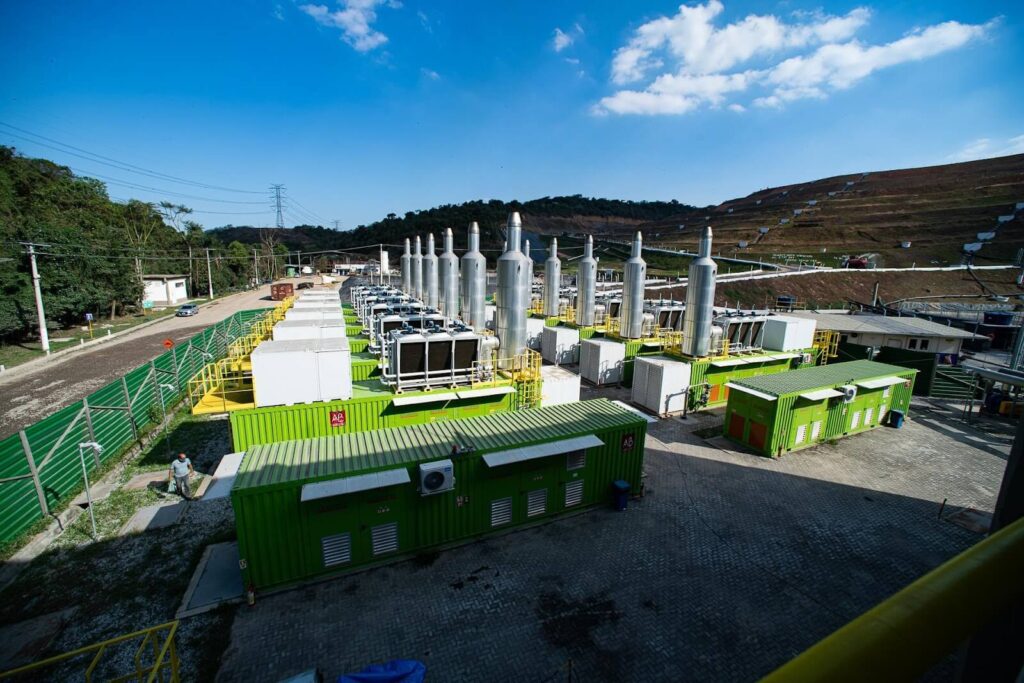
Our operation is based on the treatment of urban and industrial waste, transported to eco-parks where it is utilized to its fullest potential, including biogas generation and transformation into biomethane.
Each year, Orizon collects around 10 million tons of waste. From this waste, biogas and biomethane are produced, contributing to the company’s expansion.
We also invest in other solutions for waste valorization and circularity, such as sorting for recycling, composting, and refuse-derived fuel (RDF).
These initiatives pave the way for sustainable development in Brazil.
